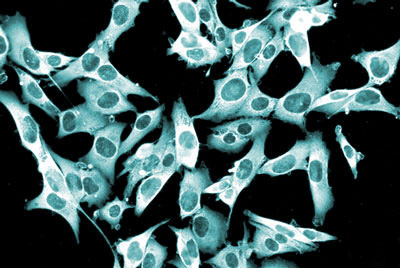NICE recommends nivolumab + ipilimumab for advanced melanoma
Posted: 17 June 2016 | | No comments yet
The NHS will receive a discount on the combination treatment agreed between Bristol-Myers Squibb and the Department of Health…


The National Institute for Health and Care Excellence (NICE) has recommended Bristol-Myers Squibb’s Opdivo (nivolumab) with Yervory (ipilimumab) for the treatment of patients with advanced melanoma.


Nivolumab and ipilimumab are part of an exciting new class of immunotherapy cancer treatments that disable the natural restrictions, preventing the immune system fighting cancer cells.
Dr James Larkin, Consultant Oncologist at The Royal Marsden, London, said: “Using these two medicines together in a double-hit approach provides complementary action, allowing us to target the cancer more effectively. The result is a new option that can offer longer control of melanoma than ipilimumab alone. This decision by NICE is very welcome news.”
About 1,300 people could be eligible for the drug combination each year, however doctors will need to be careful that patents are fit enough and willing to tolerate its often significant side effects such as diarrhoea and liver damage.
“A game-changing approach”
Commenting on the news, Professor Carole Longson, director of the Health Technology Evaluation Centre at NICE, said: “After one of the fastest drug appraisals NICE has carried out, these promising new immunotherapy treatments for advanced melanoma look set to significantly extend the life of people with the condition.
“The evidence we examined was very promising and I know further trials are ongoing which have also released encouraging data.
“The committee concluded that the availability of an effective new treatment option such as nivolumab in combination with ipilimumab would be valuable for people with advanced melanoma who are fit enough to tolerate it.”
Johanna Mercier, General Manager, Bristol-Myers Squibb UK & Ireland, said “Combining ipilimumab and nivolumab is a game-changing approach to the treatment of patients with advanced melanoma because using both medicines together can provide an even more powerful attack on cancer cells than we have previously seen with either medicine alone and I am delighted that NHS patients will be some of the first in Europe to have access to this latest treatment approach.”
The NHS will receive a discount on the combination treatment agreed between the company and the Department of Health, which is in confidence.
In February, NICE recommended nivolumab for advanced melanoma. NICE has also recommended ipilimumab as a possible treatment option for adults with advanced melanoma in patients that have not been treated before and in patients that have previously been treated.
Related organisations
Bristol-Myers Squibb Company, National Institute for Health and Care Excellence (NICE)




